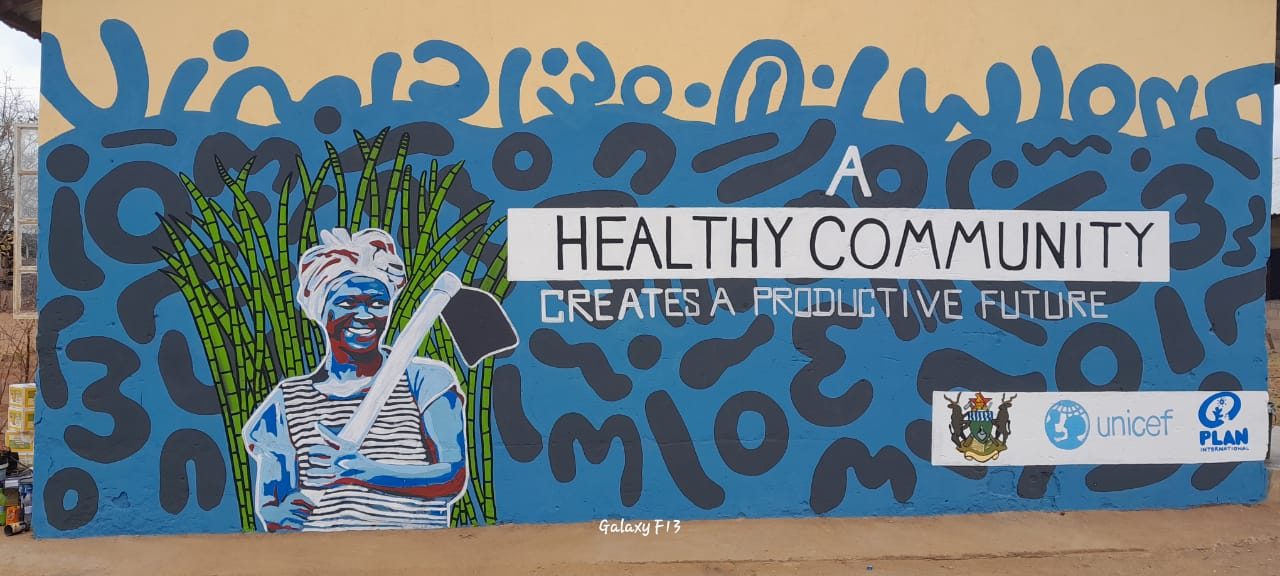Communicating good hygiene through art
30 November 2023Plan International Zimbabwe have been using art to communicate the importance of good hygiene as cholera cases rise. We recently teamed up with renowned artist Leeroy Brittain, creating good hygiene murals with school children to educate them on how to prevent the spread of cholera.

The rise in cholera cases across Zimbabwe has inspired Plan International to find less conventional ways to communicate good hygiene in identified hotspots. Under the In-School Risk Communication and Community Engagement Response to Multi-Hazards Project, Plan International took to art murals to encourage social and behavioral changes in towns where cholera cases are rising.
Children often respond positively to communicating through art. It allows them to express themselves creatively, share their emotions, and explore their imagination.
At 1 school children were allowed to participate in a three-hour co-creation session with renowned artist Leeroy Brittain, to perfect the messaging and therefore ensure the children’s ownership of the messages, designs and overall process. In excitement, children came up with various messages they hoped to see on the walls of their school and even suggested how these messages would look visually. Brittain who has experience co-creating mural designs with school children, led the sessions and allowed them to think big and be creative.
Why schools?
A baseline study conducted before implementation showed that 43% of respondents knew about cholera outbreaks from schools. This is why the project found it critical that information on good hygiene, and how to treat and avoid the continued spread of cholera originate from the same source.
Service delivery issues
The inconsistency in service delivery across the country is one of the main reasons why despite full knowledge of the risks of not practising good hygiene most people living in hotspots continue to engage in high-risk practices such as not washing their hands after using the bathroom and before eating food. High costs of firewood and load shedding also lead to more people drinking water from unprotected sources without boiling it first as advised.
The project intends also to use community radio and local health clubs to initiate discussions around good hygiene, the realities of cholera and busting popular myths in hotspots.


